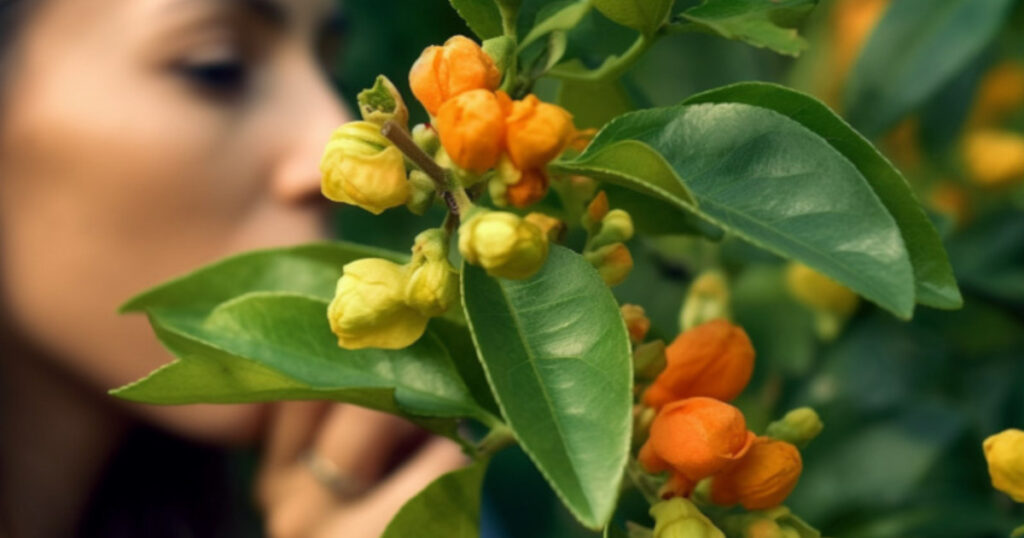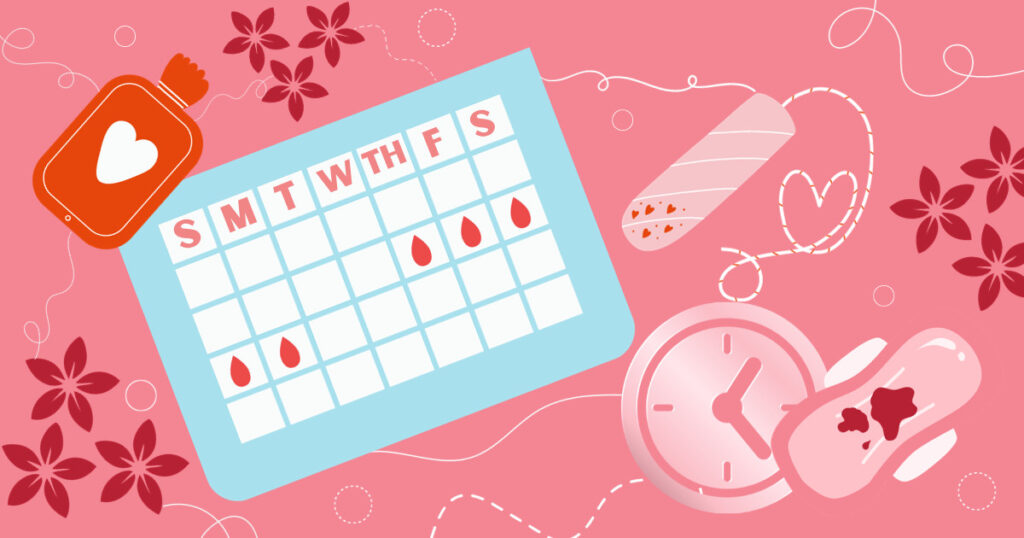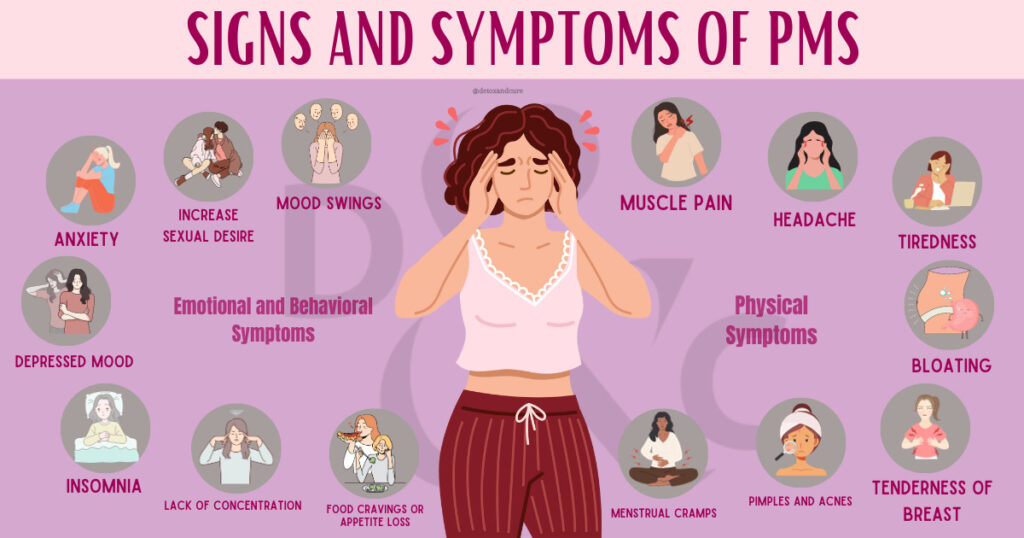Have you come across the name “Ashwagandha” recently and found yourself curious and wondering about this Ayurvedic gift from Nature? Come with us as we look at the topic of what is Ashwagandha good for woman power facts. Let’s talk about this gem that’s been the buzz of the wellness world.
Ayurveda, one of the oldest medical systems in the world that originated in India, has long regarded Ashwagandha, also known as Withania somnifera, for its properties for centuries. 1
Not only is it renowned for fighting stress and anxiety, but it’s also a jack-of-all-trades when it comes to boosting your overall health. Imagine a plant that helps keep your stress levels low, your energy up, and your body in balance! That’s Ashwagandha for you. This is why it features in the Ultimate Fibre range consistently.
The real kicker, though, is that it has certain unique benefits for women too, so it’s not just an ordinary health booster. Consider it as nature’s humble way of helping us out with things like stress and hormones.
In addition, it is supported by credible science rather than anecdotal accounts and legend.
Table of Contents
Understanding the Powerhouse of Ashwagandha
Okay, let’s get into it: what exactly is Ashwagandha?
Picture a small shrub with yellow flowers, pretty unassuming, right? Well, this little plant, often found in India and North Africa, packs a serious punch. Its scientific name is “Withania somnifera,” but you might also hear it called “Indian ginseng” or “winter cherry.”
The most effective way to consume Ashwagandha is as a root extract, because it has few toxins and is high in withanolides. Since withanolides have antioxidant, anti-inflammatory, and hormone-balancing qualities, they are the active ingredient in Ashwagandha and have a wide range of uses. 2

Since Ashwagandha is also known as an adaptogen, its advantages for joint pain, sleeplessness, and anti-aging include improving immunity. 3
People have been getting up to it to reduce stress, get some restful sleep, and possibly even strengthen their bodies’ defences. The shocking part is that science is joining in as well. Studies are being conducted that demonstrate this plant’s potential, particularly for reducing stress and anxiety and how it benefits women.
Psst! I wanna let you in on a hot tip. Recently I came across a very exciting blend of Sea Moss, Black Seed Oil, Ginger and Ashwagandha. This is loaded with 19,445mg of pure power!
What is Ashwagandha Good For Woman Power Facts
Have you found yourself wondering why Ashwagandha is so popular right now?
This is not simply another health trend, especially for women. Ashwagandha is doing great things for the women’s squad, from reducing stress to boosting immunity.
Let’s get right into these without “What is Ashwagandha good for Woman Power Facts” list and learn more about the amazing benefits of Ashwagandha for women!
Fact 1: Maintaining Stable Hormone Levels
Ashwagandha’s ability to balance hormones can be particularly beneficial for women’s health, impacting aspects like the menstrual cycle, reproduction, and menopause (more on menopause later).
A 2019 investigation suggests Ashwagandha impacts the endocrine system, which governs mood, stress responses, and reproduction. This influence can help with hormonal imbalances, including anxiety, depression, and sleep issues. 4
Ashwagandha could indirectly help maintain hormone balance. The stress on the adrenal glands, which are directly linked to hormonal health, is reduced when cortisol, which is your body’s stress hormone, is regulated. This could then positively spread onto other hormones, promoting general well-being.
Fact 2: Menstrual Cycle Regulation
To all women reading this, dealing with monthly menstruation chaos, your new best friend might well be Ashwagandha. This miracle herb has the potential to reduce the stress of your periods and even out your hormonal ups and downs. Think fewer ‘ugh’ days, greater consistency, and less discomfort!
Ashwagandha plays a significant role in regulating women’s menstrual cycles. Its adaptogenic properties help mitigate stress, which is a key factor in menstrual irregularities.

Research indicates it regulates menstrual issues by tackling imbalances in the body’s stress responses, which are often the culprits behind cycle irregularities. By acting on the nervous system, Ashwagandha helps regulate critical hormones, ensuring smoother, more predictable menstrual cycles.
This herb’s potent properties provide a natural approach for women seeking menstrual regularity and overall reproductive health. 5
There’s less potential for your monthly cycle to be delayed. Ashwagandha might be the answer to this problem.
Fact 3: Reduces the Signs and Symptoms of PMS
Ashwagandha plays a significant role in alleviating premenstrual syndrome (PMS) symptoms. Unsurprisingly, up to three out of four women report experiencing PMS symptoms.
90% of women who get PMS say that it often presents as a mix of emotional, behavioural, and physical symptoms. 6
| Emotional and Behavioral Signs and Symptoms | Physical Signs and Symptoms |
| Anxiety 7 | Muscle pain 8 |
| Depressed mood | Headache and Migraines 9 |
| Mood swings 10 | Fatigue 11 |
| Insomnia 12 | Abdominal bloating 13 |
| Lack of Focus 14 | Breast Tenderness 15 |
| Increase in sexual desire 16 | Pimples and acne 17 |
| Appetite loss or food cravings 18 | Menstrual cramps 19 |

As many women would agree, these signs and symptoms listed above are all very accurate!
Oh, those days when PMS hits, I get it. One minute you’re fine, and the next, you’re grappling with mood swings, a never-ending feeling of fatigue, and just a general sense of being out of sorts.
In my experience, I’ve encountered all of these. It’s like riding an emotional roller coaster that you never signed up for!
But thankfully, Ashwagandha aids in balancing the hormones responsible for these symptoms.
Exactly how does it do this? Specifically, it reduces cortisol levels, the body’s primary stress hormone, creating a domino effect of positivity on other hormones related to PMS.
Then, by enhancing mood and reducing stress, it tackles PMS symptoms, making the days leading up to a menstrual period less tumultuous for many women. It’s like a natural soothing agent that helps keep hormonal chaos. 20
Knowing that there is something like Ashwagandha out there that might prevent all of this destruction and restore some level of routine is a relief. Who would have thought a plant might be the ally we’ve always wanted?
Fact 4: Enhance Female Health and Sexual Function
Ashwagandha works on several levels to enhance sexual health. First, as we touched upon earlier, it’s known to reduce stress by lowering cortisol levels, and we know that stress is a major mood killer when it comes to intimacy. By calming the mind, ashwagandha can pave the way for increased sexual desire and satisfaction.
Also, it supports hormonal balance, a crucial factor in a healthy sex life. By fostering an equilibrium in the body’s hormone levels, ashwagandha aids in regulating sexual and reproductive functioning, which can lead to more fulfilling sexual experiences. 21

What’s more, this herb may promote healthy blood flow, an important aspect of sexual arousal and response. By contributing to overall physical wellness, it helps create the conditions under which sexual health can flourish.
Fact 5: Improving Fertility
Ashwagandha isn’t just about keeping stress at bay; it’s also a bit of a superhero when it comes to fertility for women.
By regulating hormone levels and enhancing ovarian function, it’s like a personal support system for your reproductive health.
Research conducted by M. Akbaribazm et al, have shown that the compounds in Ashwagandha, like isoflavones and flavonoids, can mimic estrogen, further supporting fertility.
But that’s not all! This herb is also on the front lines fighting off bacteria and inflammation, which can be crucial for dealing with uterine infections and irregular vaginal discharge.
Essentially, it’s all about creating a healthier environment for reproduction.
Fact 6: Enhances Skin and Hair Health
We’ve all experienced the challenge of continually sifting through an array of cosmetics to keep our skin radiant and our hair bouncy.
We all love it when our skin looks clear and radiant. The stress of photoaged skin can lower more than self-esteem. But guess what? Ashwagandha has also carved out a reputation for enhancing skin and hair health, thanks to its rich content of antioxidants, iron, and other beneficial compounds.
Ashwagandha is a powerhouse of antioxidants, which are crucial in fighting off free radicals – the pesky particles that cause aging and cell damage. By protecting the skin from oxidative stress, it helps maintain a youthful, radiant appearance.

Did you know that Ashwagandha can be a blessing for those battling conditions like acne or psoriasis, skin wrinkles reducing inflammation and soothing the skin? 22
When it comes to hair health, Ashwagandha is also known for raising the bar by stimulating scalp circulation and improving hair quality. 23
The iron in Ashwagandha helps boost blood flow, which means your hair follicles get more nutrients, potentially leading to stronger, healthier locks. It’s also believed to increase melanin production in the hair, which can help maintain your hair’s natural colour.
Fact 7: Reducing Menopause Symptoms
Ashwagandha may provide benefits such as regulating hormone levels and easing menopausal symptoms such as hot flushes. 24
According to a placebo-controlled study, its root extract significantly improved the quality of life associated with menopause and decreased physical, psychological, and urogenital symptoms in perimenopausal women compared to a placebo. 25
If you want to take a closer look at another gift from nature which was closely studied for its effects on menopause, check out Schisandra berries!
Fact 8: Promoting Bone Health and Preventing Osteoporosis
Due to the danger of osteoporosis, a bone disease that causes a lack of calcium, preserving healthy bones becomes increasingly important as women age. 26
Ashwagandha contains substances from the root extract and purified molecules, withanolides, that support bone health by increasing the number of osteoblasts, which are the cells in charge of forming bones and healing injury in the bone. 27
This means that regular Ashwagandha use can lower the risk of osteoporosis and maintain bone strength when accompanied by a healthy lifestyle.

Women’s health frequently suffers during life’s chaos. However, having Ashwagandha in your wellness toolset is like having a personal health ally. It’s more than simply a supplement; it’s a doorway to overall well-being.
Understanding the Side Effects of Ashwagandha on Females
Ashwagandha is pretty popular for its health perks, but did you know it can have some side effects, especially for women?
Ashwagandha is establishing itself as a holistic supplement that supports both mental and physical health, mirroring the variety of responsibilities women play daily.
Now we will explore this adaptogen and learn about its tremendous side effects.
- Drowsiness
- Can cause liver damage 28
- Lower Blood Sugar 29
- Nausea and Stomach Ache 30
- Can lead to miscarriage 31
- Allergic reactions 32
- Heart palpitations 33
Each of these points underscores the importance of personalised healthcare. These points came from in-depth research and clinical study.
It’s always important to consult with a healthcare professional before adding any new supplement to your routine, particularly if you have pre-existing conditions or are expecting a baby. Consider it as doing your research to make sure that anything you add to your daily routine is healthy and safe for you.
So ladies out there, remember, it’s about finding what works for you. Just like personal taste in food or fashion, our bodies have unique needs and tolerances. Ashwagandha might be a wonder herb for some, but your health is unique, and your care should be tailored to it.
Beyond Well-being: How Much Ashwagandha Should a Woman Take a Day?
While we navigate this amazing herb, we are faced with the essential question: “How much should a woman take to harmonise her health with nature’s rhythm?”
We must take into account the uniqueness of every woman’s path as we search for that ideal dosage. Here, we’ll outline the factors to take into consideration when figuring out how much Ashwagandha to take each day, each specific to the body and life of each lady.
Together, we may create a road toward empowered equilibrium by carefully walking the path of knowing.
How long does it take for Ashwagandha to Work for Women?
Finding the proper ashwagandha dosage is essential, especially for women who want to fully benefit from it.
Research suggests that a daily dose of 125 mg to 5 grams may be effective, though the ideal dosage can vary depending on a person’s health needs and the product concentration. It does not, however, fit all. Start small, perhaps with a lower dose, and monitor how your body reacts. 34
Considering Ashwagandha’s potent effects on hormone levels, consulting with a healthcare professional before starting is wise. They can provide guidance tailored to your health profile, ensuring a beneficial and safe experience with this herbal powerhouse.
But remember, always seek guidance and professional advice from your doctor when considering taking Ashwagandha.
FAQs
How does Ashwagandha affect Female Hormones?
Ashwagandha is known for its potent ability to balance hormones in women. It primarily supports the regulation of cortisol, the stress hormone, fostering a more stable hormonal environment.
This adaptogenic herb also positively influences the thyroid gland, which is important for the production of hormones related to mood, metabolism, and overall bodily function. By nurturing hormonal balance, ashwagandha can be instrumental in promoting emotional well-being, energy levels, and reproductive health in women
How does Ashwagandha make you feel?
The experience of taking ashwagandha can vary from person to person, but many report a noticeable sense of calm and clarity after incorporating it into their routine.
Because it works to stabilise stress hormones, you might find a reduction in anxiety and a feeling of relaxed alertness. It doesn’t generally induce drowsiness but rather supports balanced energy levels, potentially helping you feel more centred and ready to tackle your day.
Does Ashwagandha stop sex drive?
Ashwagandha has been traditionally used to enhance libido and support sexual health. It’s known for its ability to reduce stress and anxiety, which can be significant factors in low sex drive.
By promoting hormonal balance and reducing stress, ashwagandha can potentially foster a healthier and more active sexual desire, rather than diminishing it.
What is the smell of Ashwagandha?
Ashwagandha root has a distinct aroma, often described as horse-like, which is actually what its name means in Sanskrit. The scent can be strong and earthy, some say it’s akin to a mix between dried grass and overripe fruit.
While not everyone finds the smell pleasant, it’s a small trade-off considering the broad spectrum of health benefits that this potent herb offers.
Conclusion
It’s evident that Ashwagandha is more than simply a plant; it’s a powerhouse for women’s health. Ashwagandha demonstrates that it is a devoted ally in women’s health and wellness journeys, from regulating our inner hormonal symphony to rejuvenating our skin and hair, not to mention its extraordinary capacity to raise our mood and energy levels.
But remember that the beauty of ashwagandha is in its capacity to nourish our bodies from within, whether you are currently experiencing its advantages or you are just learning about them.
And isn’t that something worth telling others about?
Why keep this knowledge to yourself if you find it to be useful? Let’s spread the word and talk about well-being! Sharing your thoughts and some positive energy by letting us know what you think about our article “What is Ashwagandha good for Woman Power Facts” on our Instagram and Pinterest. Someone could be able to improve their health because of your contribution.
References
- “Ashwagandha – Uses, Side Effects, and More” – WebMD Staff, Last checked 23 November 2023 [WebMD] [Archive] ↩︎
- “Ashwagandha” – NIH Staff, Last checked 23 November 2023 [National Center for Complementary and Integrative Health] [Archive] ↩︎
- “An Overview on Ashwagandha: A Rasayana (Rejuvenator) of Ayurveda” – N. Singh, M. Bhalla, P. de Jager, M. Gilca, 3 July 2011 [PubMed Central] [Archive] ↩︎
- “An investigation into the stress-relieving and pharmacological actions of an ashwagandha (Withania somnifera) extract” – A. Lopresti, S. Smith, H. Malvi, R. Kodgule, 13 September 2019 [PubMed Central] [Archive] ↩︎
- “Female infertility and herbal medicine: An overview of the new findings” – M. Akbaribazm, N. Goodarzi, M. Rahimi, 15 August 2021 [PubMed Central] [Archive] ↩︎
- “Premenstrual syndrome (PMS)” – OWH Staff, 22 February 2021 [Office on Women’s Health] [Archive] ↩︎
- “Premenstrual syndrome (PMS)” – Mayo Clinic Staff, 25 February 2022 [Mayo Clinic] [Archive] ↩︎
- “Relation of the factor to menstrual pain and musculoskeletal pain” – J. Lee, H. Park, 30 April 2015 [PubMed Central] [Archive] ↩︎
- “Hormonal Headaches and Menstrual Migraines” – WebMD Editorial Team, 31 January 2023 [WebMD] [Archive]
↩︎ - “Mood instability in women with premenstrual syndrome” – R. Bowen, A. Bowen, M. Baetz, J. Wagner, R. Pierson, Last checked 23 November 2023 [PubMed] [Archive] ↩︎
- “What causes period fatigue and how to treat it” – H. Ames, 23 October 2020 [Medical News Today] [Archive] ↩︎
- “Sleep and Premenstrual Syndrome” – S. Jehan, E. Auguste, M. Hussain, S. Perumel, A. Brzezinski, R. Gupta, H Attarian, G. Louis, S. McFarlane, 3 August 2016 [PubMed Central] [Archive] ↩︎
- “5 Tips for Managing Period Bloating” – N. Silver, 20 March 2020 [Healthline Media] [Archive] ↩︎
- “Cognition, The Menstrual Cycle, and Premenstrual Disorders: A Review” – J. Le, N. Thomas, C. Gurvich, 27 March 2020 [PubMed Central] [Archive] ↩︎
- “Breast Pain (Mastalgia)” – Johns Hopkins Medicine Staff, Last checked 23 November 2023 [Johns Hopkins Medicine] [Archive] ↩︎
- “Sexual arousability and the menstrual cycle” – A. Slob, C. Bax, W. Hop, D. Rowland, J. Bosch, Last checked 23 November 2023 [PubMed] [Archive] ↩︎
- “How Your Period Affects Acne” – E. Bowers, 11 April 2011 [WebMD] [Archive] ↩︎
- “The Truth About Your Menstrual Cycle and Your Appetite” – L. Alrahmani, 25 September 2022 [Health] [Archive] ↩︎
- “Dysmenorrhea (Menstrual Cramps)” – Cleveland Editorial Staff, 22 May 2023 [Cleveland Clinic] [Archive] ↩︎
- “What Does Ashwagandha Do for Women’s Wellness?” – E. Cronkleton, 21 September 2023 [Healthline] [Archive] ↩︎
- “Efficacy and Safety of Ashwagandha (Withania somnifera) Root Extract for Improvement of Sexual Health in Healthy Women: A Prospective, Randomized, Placebo-Controlled Study” – A. Ajgaonkar, M. Jain, K. Debnath, 28 October 2022 [PubMed Central] [Archive] ↩︎
- “A Study of Efficacy and Safety of Ashwagandha (Withania somnifera) Lotion on Facial Skin in Photoaged Healthy Adults” – K. Narra, S. Naik, A. Ghatge, 15 March 2023 [PubMed Central] [Archive] ↩︎
- “Ashwagandha for Hair: How Make The Most Of It?” – Scandinavian Biolabs Editorial Team, Last checked 28 November 2023 [Scandinavian Biolabs] [Archive] ↩︎
- “Ashwagandha for menopause: Does it help?” – Z. Villines, 23 May 2022 [Medical News Today] [Archive] ↩︎
- “Effect of an ashwagandha (Withania Somnifera) root extract on climacteric symptoms in women during perimenopause: A randomized, double-blind, placebo-controlled study” – S. Gopal, A. Ajgaonkar, P. Kanchi, A. Kaundinya, V. Thakare, S. Chauhan, D. Langade, 22 September 2021 [PubMed] [Archive] ↩︎
- “Osteoporosis” – NIAMS Staff, Last checked 28 November 2023 [National Institute of Arthritis and Musculoskeletal and Skin Diseases] [Archive] ↩︎
- “Withaferin A: a proteasomal inhibitor promotes healing after injury and exerts anabolic effect on osteoporotic bone” – V. Khedgikar, P. Kushwaha, J. Gautam, A. Verma, B. Changkija, A. Kumar, S. Sharma, G. Nagar, D. Singh, P. Trivedi, N. Sangwan, P. Mishra, R. Trivedi, 22 August 2013 [PubMed] [Archive] ↩︎
- “An Herbal Liv An Herbal Liver Effect: Ashwagandha-Induced Hepat ect: Ashwagandha-Induced Hepatotoxicity” – M. Rattu, E. Maddock, J. Espinosa, A. Lucerna, N. Bhatnagar, Last checked 28 November 2023 [Rowan University: Rowan Digital Works] [Archive] ↩︎
- “What to know about ashwagandha and diabetes” – H Millar, 27 September 2021 [Medical News Today] [Archive] ↩︎
- “Ashwagandha: Is it helpful for stress, anxiety, or sleep?” – NIH Staff, Last checked 28 November 2023 [National Institutes of Health: Office of Dietary Supplements] [Archive] ↩︎
- “Ashwagandha: Purported Benefits, Side Effects & More” – MSKCC Editorial Team, 21 March 2023 [Memorial Sloan Kettering Cancer Center] [Archive] ↩︎
- “What are the side effects of ashwagandha supplements?” – T. Cooperman, 1 January 2021 [ConsumerLab.com] [Archive] ↩︎
- “Can Ashwagandha Cause Palpitations?” – Allo Health Team, 5 September 2023 [Allo Health] [Archive] ↩︎
- “Ashwagandha Dosage: How Much Should You Take per Day?” – A. Petre, 18 January 2023 [Healthline] [Archive] ↩︎
Last Updated on 4 months by D&C Editorial Team


